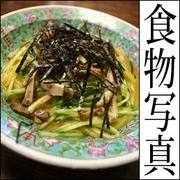- 詳細 2016年12月6日 19:41更新
-
まず、このコミュを、受験英語の犠牲となったすべての人たちに捧げたいと思います。さて、ここでは、英会話における「ルール」について基礎をマスターしましょう。以下に、大変わかりやすい「文の組み立て方」をご紹介いたします。どうぞご利用くださいませ。ここでご紹介している組み合わせをやるだけで、かなりの表現ができるようになります!頑張りましょう!
?英語は、文+〜ingが基本。
私たち日本人が苦手なのが、「その時の行動」をスラっと長い文章で言う こと。でもとても簡単です。文の後に〜ingをつけるだけ。
例:I went to Umeda listening to music(一般動詞をつなげる場合)
I went to Umeda (being)busy(形容詞の場合。beingは省略できます)
I went to Umeda being a teacher(名詞の場合。being必要)
I went to Umeda (being)with him(前置詞+名詞=形容詞※。beingは省 略できます)
※については?で説明
さらに I went to Umeda listening to music busy being a teacher with himと言ってもぜんぜん大丈夫。
やろうと思えば永遠につなげられます。さらにたとえばto buy a bagを入れれば I went to Umeda to buy a bag listening to music busy being a teacher with himなどという長い文も簡単です。
つまりなぜそういうことができるかといえば、英語というものはI+am busyではなくてI am+(being)busyという形式でできているからなのです。要するに「私は居る+忙しい状態で」。
つまり、ひとつの文の後にbeingと形容詞がついているのです。これを利用しているからこそ、文はそのままずっとつなげることができるわけです。 わたしたちはI went to Umeda with himくらいは簡単に言えますね。
それでいいのです。それに同じ形式のものを足していけば、一度にたくさんのことが一気に言えるわけです。わざわざ、I went to Umeda with him and I was busy and I was a teacher and I was listening to musicなどと
言う必要はまったくありません。
※形容詞・名詞の前には常にbeが隠れています。必要に応じて出てくるときがありますので要注意。この章でわかるように、文の後ろに形容詞や前置詞+名詞をつなげるときは消えていて、名詞をつなげるときは出てきます。
?欠番
?前置詞+名詞=形容詞(副詞にもなる)
たとえば、I am on the train(わたしは電車に乗っている状態です)の場合、on the train(前置詞+名詞)は形容詞です。
また、I had lunch on the train(私は電車でお昼ご飯を食べました)の場合は副詞です。「電車で」になりますから。
つまり、どこに置いたらいいのかさっぱりわかんない副詞なんか覚えなくても、前置詞+名詞があれば英語の表現は簡単にできるのです。
たとえば以下にいくつか前置詞+名詞の例をあげましょう。
in Tokyo
at Koshien stadium
under pressure
in her good books
with him
これらは全部、前置詞+名詞です。これらをすべてI had lunchの後につなげて見ましょう。
I had lunch in Tokyo
I had lunch at Koshien stadium
I had lunch under pressure
I had lunch in her good books
I had lunch with him
ほら、何の違和感もなく普通につなげることができます。このように、前置詞+名詞=形容詞(副詞にもなる)と覚えておけば、文の後ろにいくらでもつなげることができるのです。
また、こういう表現も可能です。前置詞+名詞=形容詞ですから、そのまま頭にI am gettingをつけて「私は〜の状態になりつつある」と表現できます。
I am getting on the train電車に乗るところ
I am getting under pressureプレッシャーがかかってきた
I am getting in her good books 彼女に気に入られつつある
そしてその結果として、
I am on the train私は電車に乗ってる状態だ
I am under pressure私はプレッシャーがかかっている
I am in her good books私は彼女に気に入られている
となるわけです。
ここまで読めば賢明な読者諸君はすでにお気づきかもしれませんが、前置詞というのはそんなに数は多くありませんし、また、その前置詞の後に来る名詞も、そんな難しい単語はあまり来ないのです。
つまり、前置詞+名詞はかなり便利な「フレーズ」と言えます。
また、get +人+前置詞+名詞で、「使役」も表現できます。
例えばget him under my thumb彼を私の尻にしく
get her on the train彼女を電車に乗せる
get them under pressure彼らにプレッシャーをかける
ほら、簡単ですね。
前置詞+名詞はつまり形容詞と同じですから、頭にgetかbeを持ってくればそのまま動詞化させることができるということもお分かりいただけると思います。
Be under my thumb私の支配下で居なさい
Be on the train電車に乗った状態で居なさい
Be with him彼と一緒に居なさい
つまり、前置詞+名詞=形容詞があれば、あたまにgetとbeをつけて動詞化させることもできるし、文の後ろにどんどんつなげることもできるし、gettingやbeingをあたまにつけて名詞化させることもできます。
名詞化の例
?getting under her thumb彼女の尻にしかれること
?being under her thumb彼女の尻にしかれた状態で居ること
さらにこれらには、あたまにhimやnotももってこれます
?Him getting under her thumb彼が彼女の尻にしかれること
?Him not being under her thumb彼が彼女の尻にしかれないでいること
そしてこれらのフレーズ????はすべて主語にもなって、それは三人称単数ですので現在形の場合は動詞にsがついてきます。
また、前置詞+名詞(=形容詞)は関係代名詞の表現において、該当する名詞のすぐ後ろにおくことができます。
例:the train to London
the man under her thumbなど。
?名詞について→常にbe動詞が前に隠れている(動詞化させたければbeを
あたまにつける。例:Be a superman!
また、それが数える名詞なのか数えない名詞なのかを確認すること
形容詞について→常にbe動詞が前に隠れている(動詞化させたければbeを
あたまにつける。前置詞+名詞も同様)。比較級・最上級を確認すること。
動詞について→現在形・過去形・過去分詞を頭に叩き込むこと。
過去分詞は形容詞や受動態として利用できます。
?HowやWhatなどで始まる疑問文をひっくり返せばそれがそのまま「名詞節」になり、その「名詞節」は三人称単数の名詞として利用できます。
What are they doing? →what they are doingになるので、
I don't know whta they are doingと簡単に言える。
また、What they are doing is getting me sadとも言えます。
?形容詞フレーズA(形容詞+前置詞+名詞)
そのまま文の後につけられます(gettingをあたまに足してもよろしい)
sick of+名詞節あるいは(him)(not)〜ingあるいは名詞
tired of+名詞節あるいは(him)(not)〜ingあるいは名詞
able to 動詞
used to 名詞節あるいは(him)(not)〜ingあるいは名詞
ashamed of+名詞節あるいは(him)(not)〜ingあるいは名詞
serious about+名詞節あるいは(him)(not)〜ingあるいは名詞
など
動詞化も名詞化もできる。そしてそれは主語になれて三人称単数。
?形容詞フレーズB(前置詞+名詞)
そのまま文の後につけられます(gettingをあたまに足してもよろしい)
under pressure
under one's thumb
on the train
to London
in Tokyo
on drugs
in the limelight
under a cloud
with a headache
with a cold
with lipstick on his shirt
with a problem
without money
fluent in English
など
動詞化も名詞化もできる。そしてそれは主語になれて三人称単数。
?動詞フレーズA
動詞のあとにingをつけて、文の後につけられます
dream of+名詞節あるいは(him)(not)〜ingあるいは名詞
look forward to 名詞節あるいは(him)(not)〜ingあるいは名詞
think about+名詞節あるいは(him)(not)〜ingあるいは名詞
mind+名詞節あるいは(him)(not)〜ingあるいは名詞
can't stand+名詞節あるいは(him)(not)〜ingあるいは名詞
regret+名詞節あるいは(him)(not)〜ingあるいは名詞
など
名詞化できる。そしてそれは主語になれて三人称単数。
?動詞フレーズB
動詞のあとにing をつけて、文のあとにつけられます
do the laundry
do the dishes
hit on her
build confidence
fight like cats and dogs
cheat on you
kid oneself
have an affair
sweat like a racehorse
hit the books
take 7 days off
give it a kick
make the headlines
make a decision
wear her out
study abroad
have it on one's chest
pick oneself up
move up in the world など
名詞化できる。そしてそれは主語になれて三人称単数。
?欠番
?There is an apple in the tree
There is a riot going on
There is a starman in the sky
これらの例文を見てわかるとおり、名詞の後には動詞のingや前置詞+名詞(つまり形容詞)がくっついているものが多い。
?I like water
I like dogs
こういう場合は、数える名詞にはsを、数えない名詞には何もつけません。
?数える名詞の場合
a lot of , many +s
some +s
a few +s
few +s
no +s
数えない名詞の場合
a lot of ,much
some
a little
little
no
?文につなげるフレーズ
I am glad +文
It is too bad +文
I can't believe+文
I am sorry+文
I am angry+文
No wonder+文
I am worried+文
I am scared +文
I hope+文
What if +文
Make sure +文
I bet+文
It is not like+文
There is no way+文
?動詞につなげるフレーズ
Why don't you 〜?
Do you wanna〜?
I am going to〜
Are you going to〜?
I was going to〜
I didn't mean to〜
Do you want me to〜?
I used to 〜
I hardly ever 〜
Can you 〜?
May I 〜?
My aim is to 〜
It is time to 〜
Why should I 〜?
Do you ever 〜?
Are you ever going to 〜?いつか〜するの? いずれ〜するつもりある?
など
?know+名詞節、名詞、that文
?tell him to〜、that文、名詞節
?名詞節の数々
what you do
where to go
if he is going to come
where he went
where you work
what she thinks
what time she is going to come
where I am going to go
how you feel
who he is going to go with
what floor he lives on
what you are talking about
who he went there with
what to do
what to say
how to say it in English
what to give him
how to get there
where to take her など
?名詞節につなげるフレーズ
I don't know名詞節
I don't have any idea名詞節
I wonder 名詞節
remember名詞節
find out名詞節
figure out名詞節
It depends on名詞節
ask him名詞節など
?そのまま覚えるべきフレーズ
Not again!
What do you do?など
21 応用の利くフレーズ
I get angry easily など
22 関係代名詞について
前置詞+名詞は、該当する名詞のすぐ後ろに置けます。
名詞、動詞、形容詞、受動態をつなげる場合はthatが必要
whereを使うときは前置詞をつけない
Look at the man whose cap is green
名詞を目的語とする場合はthat必要なし
23 stay keep look sound feel smell tasteのあとは形容詞(前置詞+名詞)がよくきます。
24 home where here there overseas outdoors indoors west upstairs downstairsは形容詞です。
25 過去分詞につなげるフレーズ
I should have〜
I should not have〜
26 〜ingにつなげるフレーズ
I can't imagine 〜ing
What's it like 〜ing?
I miss 〜ing
I have been 〜ing
I have trouble 〜ing
Thanks for 〜ing
What happened to 〜ing?
What's wrong with 〜ing?
27 If I had known it
I would have gone there
→I wish I had known it
→I wish I would have gone there
28 wiilは、「じゃあ」「きっと」で覚える
29 やることが決まっている未来は現在進行形で表現できる
例:I am seeing Rolling Stones live tomorrow.
30 naive nervousなどの意味に注意
31 ask 人 名詞節
32 Guess 名詞節
備考
※現在形の文章は「ふだん」を表します。→I cook私は普段料理をします。
※
付録につけるフレーズ
make up one's mind to
look up to
change one's mind
in surpise
turn up one's nose at
lose one's temper
Igo by ZERRY
go red
run into
see them live
get dressed
get changed
feel sorry for
live in luxury
beg to
proud of
had better not
back you up
take notice of
Don't you dare 〜?
I get to
I got to
in disgust
with interest
You must be 形容詞
homesick for
stuck-up
inclined to
full of
in one's good books
responsible for
wear glasses
work at Sony
wear make-up
What do you do?
go skiing
get off work
watch TV
hang out
have dinner
look for ~
see a movie
get paid
do the dishes
get angry
go home
order a pizza
go to the 7-11
have a party
go to bed
go to sleep
stay home
ask 人 out
introduce 人 to my parents
go drinking
take 人 out for one's birthday
move in together
get transferred
get laid off
have lunch
go out
get married
cheat on 人
make the deadline
say yes
go to karaoke
have the baby
get fired
get hired
come home
wash one's hands
say sorry
say thank you
get a job
buy a bag
go to the beach
go straight home
walk the dog
spend money
go out with 人
shout at 人
get it dirty
hurt 人
mess up
in trouble
go somewhere
go on a diet
eat something
transfer to sales
go to work
get transferred to Sapporo
do overtime
break up
go shopping
get a drink
get a dvd or something
come over
eat out
go camping
get 人 something
show 人 around Tokyo
pick 人 up
make 人 dinner
save 人 a seat
take a break
see a doctor
have an operation
have a fight
save money
in high school
quit one's job
stay out late
ask a question
use the bathroom
fill in for 人
get the laundry in
get ready
clean the house
take up a sport
go to the gym
change jobs
go for a drive
buy you dinner
look after ~
get in touch with
quit smoking
lose weight
gain weight
take a day off
study abroad
get to sleep
go clubbing
make friends with
keep up with
get parking
get promoted
get back together
miss the train
get a bonus
stand 人 up
go bankrupt
have a crush on 人
get lost
pass the test
get ripped off
hang out the laundry
get in your way
hit on 人
get a boyfriend
make up with 人
get divorced
call in sick
go shopping
do the shopping
go to the park
go to the pool
go for a walk
wake up
get up
take a shower
fold the laundry
water the plants
get a check-up
take medicine
go to hospital
in hospital
get out of hospital
get a haircut
go to the bank
get money out
drop 人 off
make it up to 人
kill time
say hello
say sorry
see them live
drive a Toyota










